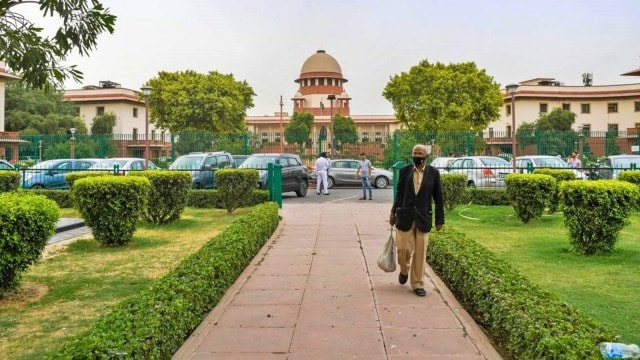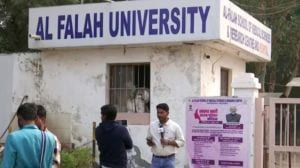The Supreme Court has upheld a Bombay High Court order that awarded compensation to a Dalit couple by widening the definition of “property” under the Scheduled Castes and Scheduled Tribes (Prevention of Atrocities) Act to include intellectual property.
The couple, both of whom have PhDs from Jawaharlal Nehru University (JNU), had gone to the Bombay High Court seeking compensation over the theft of their research data from their Nagpur home.

The Maharashtra government, which had opposed their plea in the High Court, later moved the Supreme Court against the November 10, 2023 HC order.
Story continues below this ad
But a bench of Justices B V Nagarathna and S C Sharma dismissed the state’s plea on January 26. “We have heard the learned counsel for the petitioner at length. We do not find any merit in the Special Leave Petition”, the court said.
The couple, Shiv Shankar Das and Kshipra Kamlesh Uke, had told the Bombay HC that they had collected more than 500 samples for their socio-political survey from students of various educational centres in Nagpur. They alleged that while they were out of the city, the son of their house owner, who belongs to a higher caste, broke the locks of their premises along with police and took away raw research data, survey forms and process data by stealing their laptops.
The couple lodged a complaint, and an investigation was launched. The National Commission for Scheduled Castes, too, conducted an inquiry.
During this time, the couple sought various forms of relief, including for intellectual property damage, under Section 15A(11)(d) of the SC/ST Act. This provision charges the state with the duty to provide relief in respect of death or injury or “damage to property”.
Story continues below this ad
The commission recommended that the District Magistrate consider the couple’s ten-point demand, pay them compensation and form an SIT to investigate the matter.
The SIT was formed and a charge sheet was filed against the accused. But the couple alleged that even though they were granted relief under certain heads, the authorities took the stand that there was no provision in the Act or the Rules to grant any additional relief in the form of compensation for the damage to intellectual property.
Following this, they approached the Bombay HC, arguing that the word “property” referred to in the provision encompasses property such as data, electronic material and intellectual rights.
The state government contended that the words “damage to property” in the provision are required to be interpreted to mean tangible and physical property.
Story continues below this ad
Rejecting this argument, the High Court Division bench had said that the word “property” is not defined in any provision of the Atrocities Act and, “therefore, must be given a plain and literal meaning to the word, which would include immovable and movable property, whether tangible or intangible or in any form of whatsoever nature which is capable of being valued”.
“The meaning to be assigned to the word ‘property’ would include incorporeal property such as a right in rem, a right over material or immaterial thing and includes a legal right in a property not having any physical existence such as a Patent, a Copyright or a Design which are intangible in nature and lack physical existence. Intellectual rights are rights in property even though they lack physical existence and are, therefore, capable of valuation for the purpose of deciding compensation or relief under the provisions of the Atrocities Act,” it said.
“We hold that the intellectual property contained in the form of data or electronic material or any other material contained in the soft copy or digital form… would be capable of valuation for the purpose of granting reliefs in terms of the provisions of Section 15A read with Rule 12 of the Atrocities Act and Rules made thereunder,” it said.









